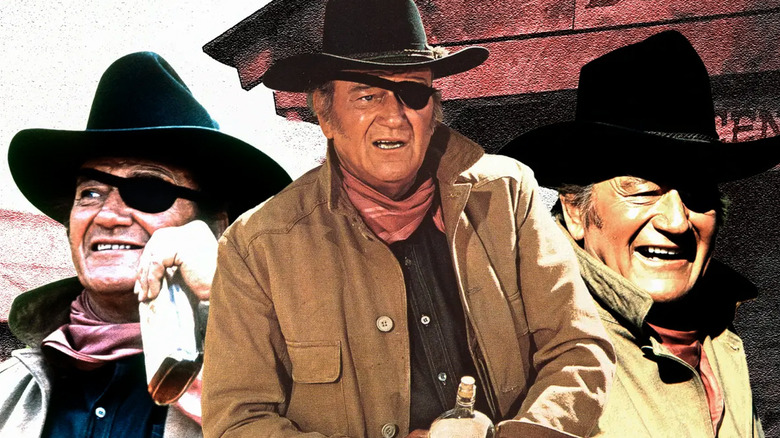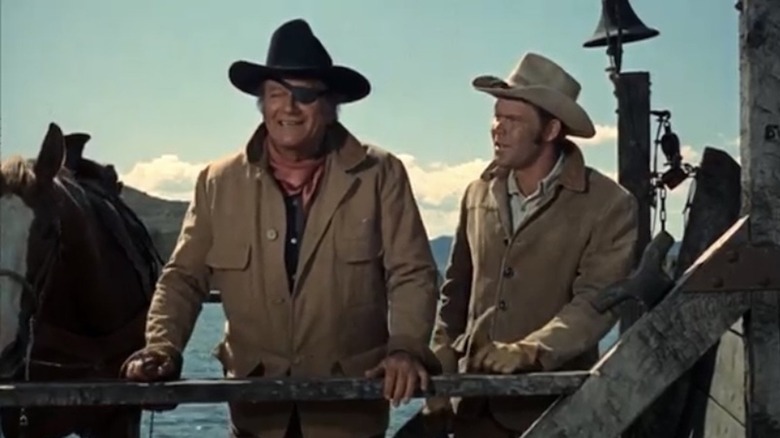John Wayne Considered True Grit To Be His 'First Decent Role In 20 Years'
The 1960s were rough on John Wayne. Rebellious Baby Boomers had by and large rejected the conservative star of numerous Westerns and war films, which threw a dent into his reputation as the most bankable actor in Hollywood. He'd survived cancer, but not without losing a lung. He'd also barely survived "The Green Berets," a critically reviled effort at rallying the American populace behind the doomed war effort in Vietnam. He looked every one of his 62 years and then some. If Wayne wanted to extend his career into the 1970s, he had to start playing his age.
This opportunity arrived at the moment he needed it most in the form of Rooster Cogburn, the drunk and surly U.S. Marshal hired by a young girl to hunt down the outlaws who killed her father. As a Western, Charles Portis' "True Grit" was made to order for Wayne. It wasn't revisionist like a Sam Peckinpah film or heightened like Sergio Leone's spaghetti-flavored oaters. The film had a firm moral spine, which gave the image-conscious Wayne license to play a bit of an old, if capable, fool.
For Wayne, it wasn't just a stroke of luck. It was the best material he'd been given in ages.
Wayne's assessment of his own work might've been a tad off
In a 1969 interview with a young Chicago Sun-Times critic named Roger Ebert, Wayne opened up about his career struggles and the ravages of age. It's a terrific read, and a reminder that Ebert could paint a vivid portrait of an artist with a paucity of column space.
After Wayne gives Ebert a tour of his construction-riddled house (he amusingly grouses about having to build his son a bunk bed and a porthole), The Duke grabs a bottle of tequila and two glasses, and eases into their interview. When Ebert notes that Cogburn may be the best character of Wayne's long career, the star doesn't disagree.
"It's sure as hell my first decent role in 20 years... and my first chance to play a character role instead of John Wayne. Ordinarily they just stand me there and run everybody up against me."
Wayne could be referring to two roles: His Oscar-nominated portrayal of Sgt. John Stryker in "Sands of Iwo Jima," or Captain Nathan Brittles in John Ford's "She Wore a Yellow Ribbon." While the former is one of the few movies in which Wayne dies, the latter is a masterpiece that required The Duke to really, truly act. Brittles is an aging, eager-to-retire cavalry leader tasked with protecting the wife and daughter of his superior. It's his best performance outside of 1956's "The Searchers." But if Wayne didn't consider the bigoted Ethan Edwards his best role, maybe he wasn't the best judge of his own work.

